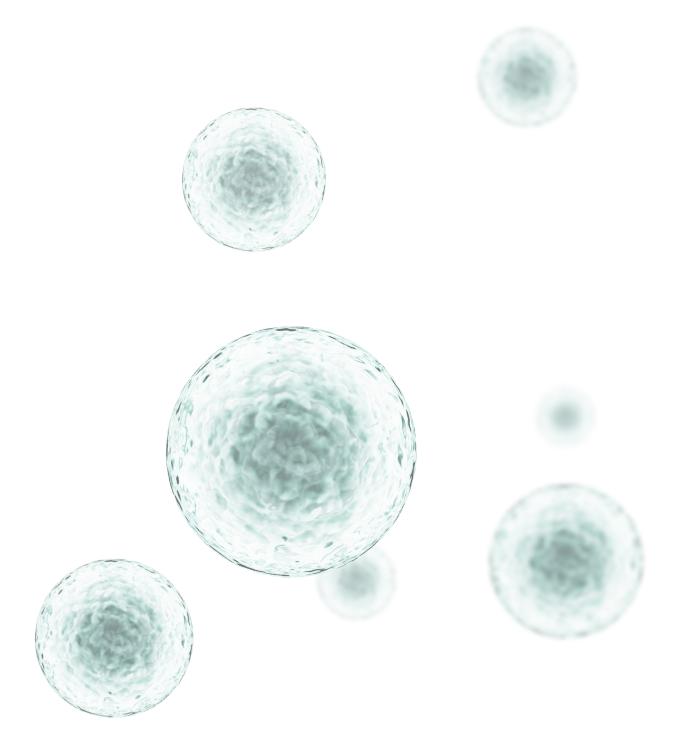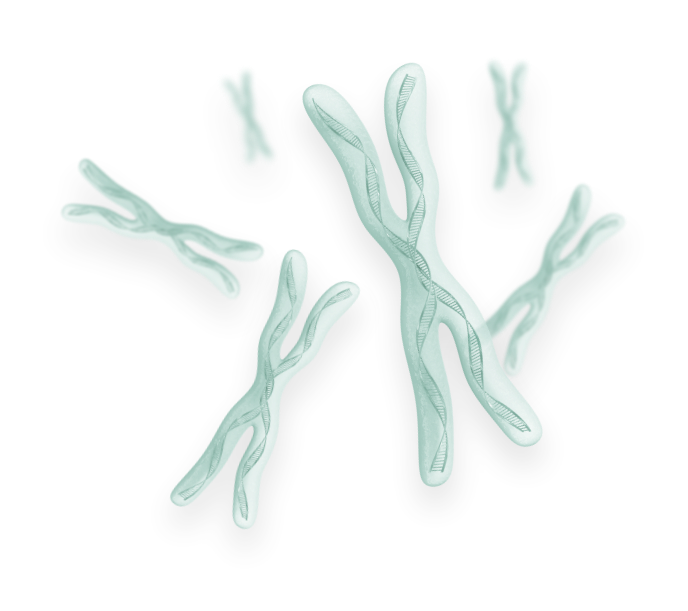Reducing the risk of inherited disease
Reducing the risk of inherited disease
A small number of cells are sampled from embryos, produced using IVF technology, and analysed to predict whether a specific defective gene has been inherited. Juno typically combines more than one advanced method in order to provide highly accurate results.
Most tests are custom designed for individual patients, taking into account their unique genetics. The majority of chromosome abnormalities, responsible for most cases of miscarriage and problems such as Down syndrome, are also detected at no extra cost.
Karyomapping looks at thousands of SNPs on each chromosome. These variations in the DNA are passed on from parents to their embryos. Each copy of a gene is associated with a characteristic group of SNPs, which can be thought of as being like a unique DNA fingerprint for that copy. Juno compares the SNPs in different members of the same family in order to define the pattern of SNPs associated with a mutant gene and the SNP fingerprint that accompanies the normal copy of the gene. Analysis of these patterns in embryo samples allows Juno’s scientists to predict whether the embryo is affected by the inherited condition for which PGT-M was requested.
Autosomal recessive diseases:
‘In this case having only one copy of the altered gene does not mean a person has the disease, just that they are a carrier. To have the condition, both the maternal and paternal copies of the gene must be defective. For recessive disorders, 25% of the offspring will be healthy, 50% will be healthy-carriers and 25% will have the disease.

PGTseq-M is for couples who are known to be at risk of transmitting a monogenic disease and wish to reduce the chances of having an affected pregnancy.
In order to design a new PGTseq-M method, it is important that the defective gene causing the inherited disorder has been identified and the mutation in the gene has been characterized.


PGTseq-M is for couples who are known to be at risk of transmitting a monogenic disease and wish to reduce the chances of having an affected pregnancy.
In order to design a new PGTseq-M method, it is important that the defective gene causing the inherited disorder has been identified and the mutation in the gene has been characterized.

The development of a new test (prePGTSeq-M) generally requires a maximum of 40 working days from the date Juno receives all the DNA samples and the associated documentation. Once Juno has confirmed that the test is ready, the IVF cycle can be started. The embryos obtained can be biopsied and the samples sent to Juno. PGTseq-M results are generally available within 10 working days after Juno receives the embryo biopsy samples.
Our goal is to make working with Juno Genetics as easy as possible. Juno is committed to support the clinics we work with by providing guidance at all stages of the PGT process. We are available to help with queries and provide advice. At Juno we understand different clinics may have unique needs and our policy is based on flexibility, where we adapt to the specific requirements of each clinic. If your clinic already offers PGT in collaboration with another genetic laboratory, then it is likely that very few, if any, significant changes will be necessary. Please contact Juno Genetics and we will be happy to guide you through the registration procedure, providing you with all the necessary documentation and solving any questions you may have. If your clinic is new to PGT, Juno can assist by providing information and documentation to help you get started. Juno can also assist with training and evaluation of procedures, ensuring that all elements of the PGT procedure are optimized and functioning properly, prior to launch a clinical service. Please contact supportspain@junogenetics.com to get started with Juno.
A detailed explanation of the PGTseq-M method and its requirements is included in the Juno Genetics Instruction Manual. In summary, Juno will start working on a new PGTseq-M test (prePGT-M) once the following is received: 1) genetic reports describing the mutation(s) responsible for the disorder(s) for which PGTseq-M is requested; 2) blood samples from the couple requesting PGTseq-M (both male and female, even if only one of them is carrier of the mutation); 3) whenever possible, a blood, DNA or saliva sample from a child or the patient’s mother/father tested for the mutation; 4) a completed test request form for PGTseq-M which includes relevant patient information, including genetic information. A prePGT-M test requires several weeks to be developed in each case. Although in most cases, the prePGT-M will have a successful outcome, in rare cases it will be technically not feasible. For these reasons, patients should not start an IVF cycle until Juno has confirmed that the prePGT-M test has been successfully developed.
